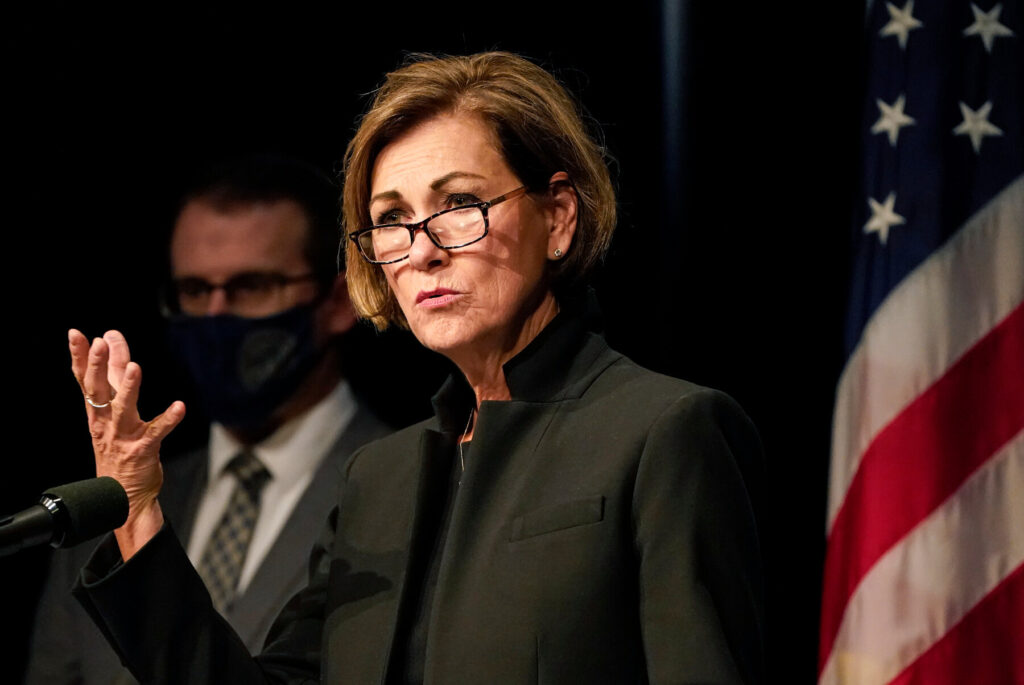Iowa governor allocates $100M in American Rescue Plan Act funding to housing

Iowa will spend $100 million in federal American Rescue Plan Act state and local fiscal relief funds over the next five years in order to make more housing options available to state residents.
The funds supplement $230 million Iowa legislators approved in the last legislative session, Gov. Kim Reynolds said in her announcement Sept. 8 at the HousingIowa Conference in Cedar Rapids, KCRG reported.
Reynolds said the state expects to gain 47,000 more households by 2030 as people move into The Hawkeye State, seeking jobs, among other reasons. Iowa Finance Authority forecasted in its Iowa Profile report that by 2030, the number of households should grow to 1,351,277, with 392,192 renter households and 959,085 homeowner households. The state saw 5,254 newcomers in 2019 and 1,148 in the first half of 2020. The U.S. Census Bureau estimated there for 2015-2019, there are 1,265,473 households in Iowa.
“We’ve seen a growing mismatch between where the job opportunities are thriving and where people can find affordable places to live,” Reynolds said at the conference recording KCRG posted. “This issue requires us to think big and act boldly. It’s too important to really do anything else.”
The investment “promises to build” about 36,000 new housing units statewide “with an average contribution per unit of more than $9,000,” a news release from the governor’s office said.
- $45 million will be invested into the Federal Housing Tax Credit program “to move [an estimated] approximately 15 housing tax credit projects forward that otherwise would not be able to proceed” and create “an estimated total” of 700 rental homes. Developments that unsuccessfully applied for a 2021 9% Federal Housing Tax Credit Program and are “shovel ready” are eligible and will be prioritized based on scoring criteria. The financing will be paired with the federal 4% tax credit program.
- $20 million will provide “gap financing” to current Workforce Housing Tax Credit Program projects to offset the increased cost of construction building materials, supporting the projects’ completion.
- $20 million will go to the Downtown Housing Grant Program to support local downtown revitalization through new housing opportunities in municipalities that are home to 30,000 or fewer residents.
- $10 million will be given to Homes for Iowa, a public-private partnership that trains “offenders” in skilled building trades while building single family homes at the Newton Correctional Facility, to offset material costs, construction of a permanent shop and home moving equipment set-up to increase training and production of homes.
- $4 million will support a Home Repair Block Grant pilot program, which organizations can apply for to provide to qualified homeowners for eligible repair expenses.
- $1 million will be used for a Minority Homebuyer Down Payment Assistance pilot program. Two hundred eligible Iowa minority households will receive a $5,000 down payment and closing costs assistance grant when used with an Iowa Finance Authority mortgage program.
“Homeownership is a leading driver of wealth creation, yet minority homeowners in Iowa are underrepresented,” the release said.
More information and application materials are available at iowafinance.com/arphousingfunds.
United Van Lines reported in its 44th Annual National Migration Study that the top two reasons people primarily moved to Iowa in 2020 were for job-related reasons (45.3%) and family reasons (41.3%), while 69.3% of people who left Iowa left because of job-related reasons. Migration traffic was 52.1% inbound. About 64% of those who came to Iowa and about 69% of those who left the state made at least $100,000 in income.
Full-time workers in Iowa need to make $15.97 hourly ($33,224 annually) to afford the state’s average two-bedroom apartment, assuming a Fair Market Rent of $831, according to a report from National Low Income Housing Coalition.
This article was originally posted on Iowa governor allocates $100M in American Rescue Plan Act funding to housing







